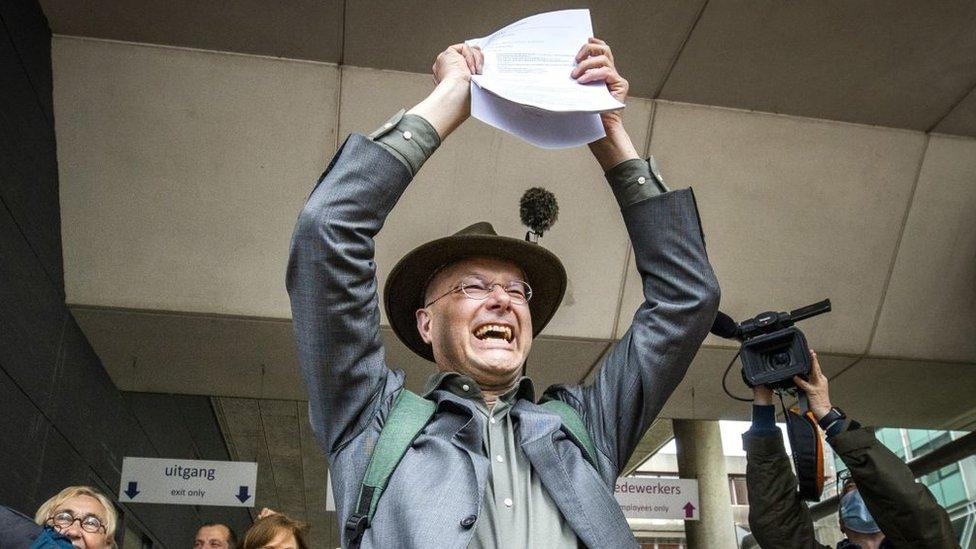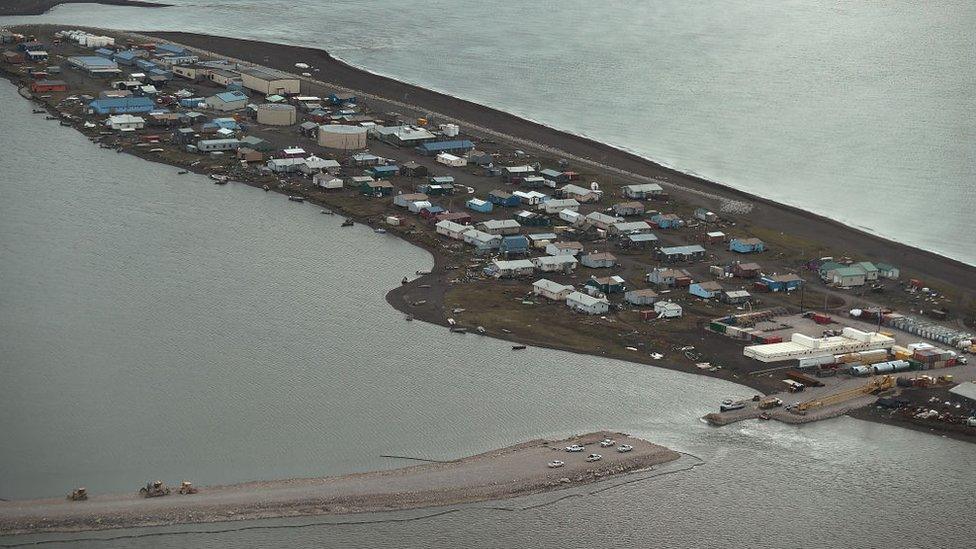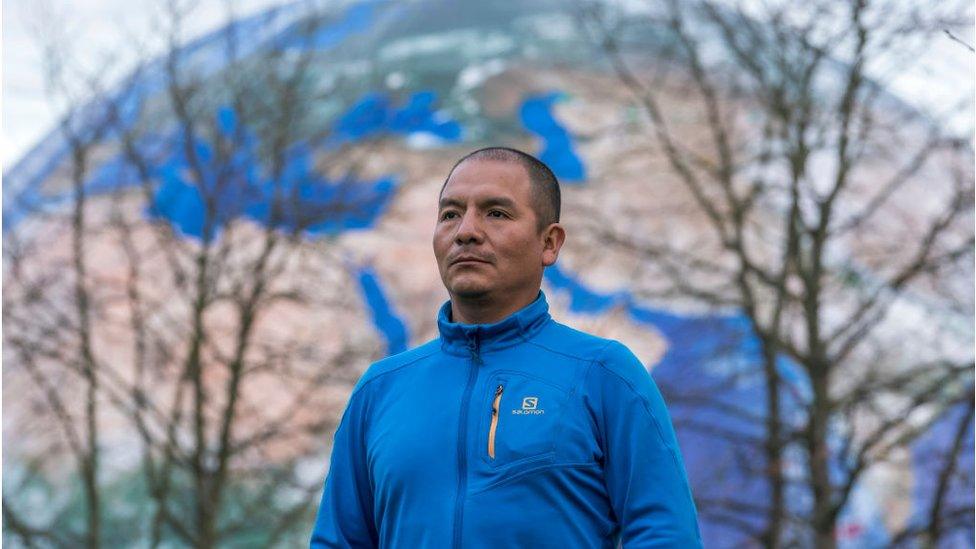Climate change: Courts set for rise in compensation cases
- Published

Dutch environmentalists celebrate a recent victory over Shell in court
There's likely to be a significant increase in the number of lawsuits brought against fossil fuel companies in the coming years, say researchers.
Their new study, external finds that to date, lawyers have failed to use the most up-to-date scientific evidence on the cause of rising temperatures.
As a result, there have been few successful claims for compensation.
That could change, say the authors, as evidence linking specific weather events to carbon emissions increases.
So far, around 1,500 climate-related lawsuits have been brought before the courts around the world.
There have been some notable successes for environmental groups, such as in a recent case against Shell decided by a civil court in the Netherlands.

Campaigners also took to the streets to support a successful case that the Dutch government was moving too slowly on climate change
The judge ruled that, by 2030, the company must cut its CO2 emissions by 45% compared to 2019 levels.
The verdict also indicated that the Shell group is responsible for its own CO2 emissions and those of its suppliers.
However, there have been few successes in cases where the plaintiffs have sought compensation for damages caused by climate change linked to human activity.
This new study has assessed some 73 lawsuits across 14 jurisdictions and says that the evidence presented to the courts lagged significantly behind the most recent climate research.
Over the past two decades, scientists have attempted to demonstrate the links between extreme weather events and climate change, which are in turn connected to human activities such as energy production and transport.
These studies, called attribution science, have become more robust over the years.
For example, researchers have been able to show that climate change linked to human activities made the European summer heatwave in 2019 both more likely and more intense.

The remote Alaskan community of Kivalina brought a climate lawsuit against oil giant ExxonMobil claiming damages, but lost in court
A recent paper, external on Hurricane Sandy - the deadly storm that wreaked havoc from the Caribbean to New York in 2012 - showed that climate change was responsible for about 13% of the $62bn in losses caused by the event.
If peer-reviewed evidence like this was presented to the courts, the authors say, it would be easier to prove causality and make compensation claims more likely to succeed.
"Despite the clear role for attribution science evidence in these lawsuits, we found that the evidence submitted and referenced in these cases still lags considerably behind the state-of-the-art in climate science," said Rupert Stuart-Smith, the study's lead author and a PhD student at Oxford University.
"Crucially, we found that this is, in fact, impeding these causal claims."
"If some of these cases are successful, and the courts see a plausible route to justice or a plausible route to compensation, that would increase the likelihood that more and more communities will turn to the courts."
Sophie Marjanac, from the environmental law group ClientEarth, told BBC News: "As this science improves, the boards of individual fossil fuel companies should be preparing for their day in court, to respond to charges that they are to blame for increased natural disasters and disruptions to the planet's climate stability.
"And as this trend continues, we will also need to see courtrooms keep pace with the work of attribution scientists, so that their judgements are in line with the latest scientific evidence."

One farmer's fight

Peruvian farmer Saul Luciano Lliuya
Peruvian farmer Saul Luciano Lliuya's case against the German energy giant RWE has been ongoing since 2014. Mr Lliuya claims that rising temperatures are melting a glacier, threatening his home in Huaraz, in the west of the country, with flooding.
The farmer has spent thousands of dollars trying to stem the waters to little avail. His case for compensation of around $17,000 was based on RWE being responsible for around 0.5% of global warming. While many experts believed the case was weak, in 2017, the courts in Germany recognised that there was merit to the questions that the farmer was raising.
Rupert Stuart-Smith commented: "That case has got further than any other before it on compensation, and it's now in an evidentiary phase where the court has essentially asked the question, is climate change really doing this?"
"And our suggestion is that plaintiffs can answer those questions in their submission to the courts."

The researchers point to the example of the link between smoking and lung cancer. The solid, scientific evidence was eventually accepted by the courts and the tobacco industry paid huge amounts in compensation as a result.
Oil, gas and coal producers are aware of these legal moves to use the most advanced science to prove responsibility - they are likely to do everything in their power to resist them.
"There's increasing concern within the fossil fuel industry, and among investors, that these cases seem to have merit and have a chance of success and the risk perception of investors in the fossil fuel industry could quite rapidly change [so that] emissions could become seen as liabilities," said Rupert Stuart-Smith.
"That could change the game in terms of understanding whether or not it makes sense to continue to dump carbon in the atmosphere, if doing so causes risk for your company."
The study has been published in the journal Nature Climate Change.
Follow Matt on Twitter, external.